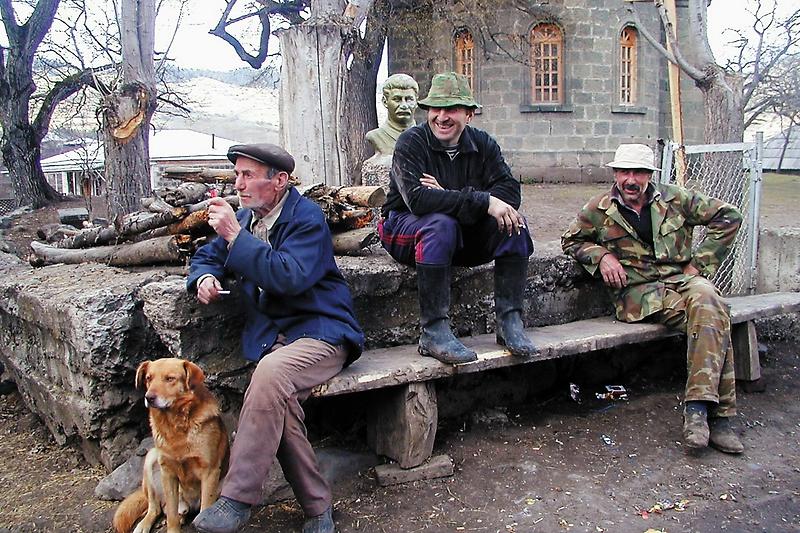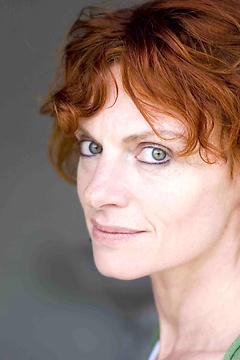
MILSADENIS MEZOBLEBI
The Pipeline Next Door

Extending over 1,760 kilometres, the BTC pipeline connects the oil fields of the Caspian Sea with the Turkish Mediterranean coast. At the groundbreaking ceremony, held in 2002, it was celebrated as the largest, most expensive project of its kind in the world; one which would benefit everyone. Reality in the transit nations looks different however: driven into a corner by the emissaries of global corporations, the residents of the mountainous village of Sakire discuss the almost insulting prices that BP has offered them for their land, and by extension their livelihood, as well as the risks posed by the pipeline in terms of safety and health. And in doing so they come into conflict with representatives of the system as well as with each other. At which point it becomes clear that, even if the pipeline connects spaces, socially it has the potential to create new fault lines and upheaval. It is against this background that the closing words of the film, "and may the pipeline bring us peace!", are quite possibly to be understood as nothing more than a pious wish.
Text: Susanne Strätling
English: Peter Rickerby
Glad-House: original version with English subtitles + German simultaneous translation
Event information:
SlowTalk on ECOEAST
Thu Nov 10, 7∶30 pm | Slow, Glad House.
This new section at FFC discusses ecological issues and the impact of encroachment on nature and the landscape on social interaction. This year, ten films show how Georgian director*s between1934 and today deal with the issue. In "Slow" the filmmakers and experts talk about the interactions between ecology and society, industrialization and protest culture, and the role of film as a medium in the sustainability debate.
Nino Kirtadze
Jacek Petrycki
Giorgi Tsintsadze
Akaki Bliadze, Suart Duncan, Vasiko Ioramashvili, ...
Thierry Garrel, Pierrette Ominetti - ARTE Frane 4

Nino Kirtadze - Nino Kirtadze was born in Tbilisi, Georgia. She holds a degree in literature. Her script for a full-length feature film ("Monday") won the best script award from the Georgian Union of Cinematographers in 1991. She began her acting career by playing the lead role in a "Chef in love" a film by Nana Djordjadze which was selected at Cannes in 1996 and nominated for an Oscar. During the troubles of the 1990s in the Caucasus, she worked as a war correspondent for AFP and for AP, covering the war in Chechnya and other armed conflicts in the region. Since 1997, Nino Kirtadze has lived in France. Kirtadze is a member of the European film Academy.